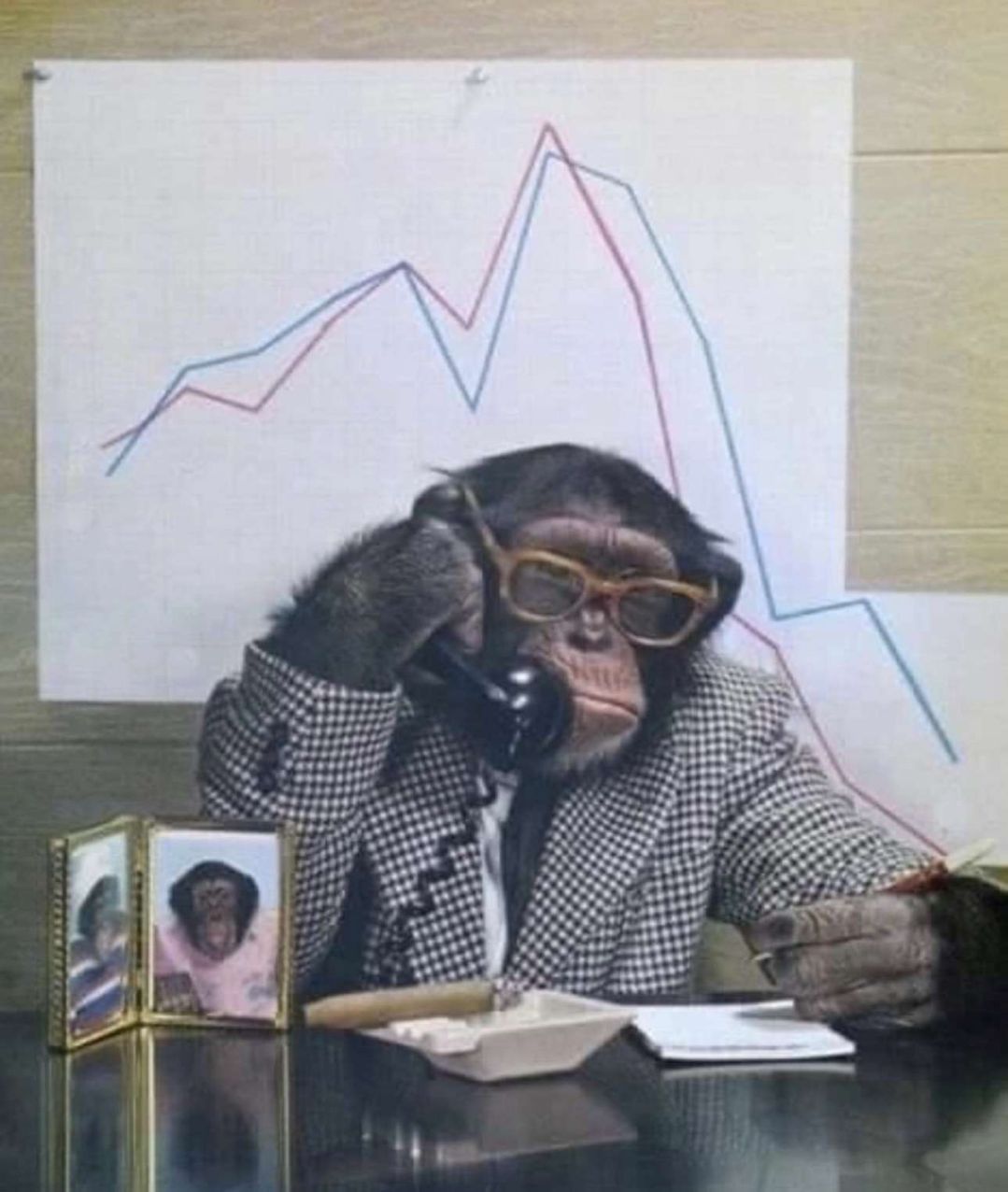Over the past 10 years, rates of colorectal cancer among 25 to 49 year olds have increased in 24 different countries, including the UK, US, France, Australia, Canada, Norway and Argentina.
The investigation’s early findings, presented by an international team at the Union for International Cancer Control (UICC) congress in Geneva in September 2024, were as eye-catching as they are concerning.
The researchers, from the American Cancer Society (ACS) and the World Health Organization’s (WHO’s) International Agency for Research on Cancer, surveyed data from 50 countries to understand the trend. In 14 of these countries, the rising trend was only seen in younger adults, with older adult rates remaining stable.
Based on epidemiological investigations, it seems that this trend first began in the 1990s. One study found that the global incidence of early-onset cancer had increased by 79% between 1990 and 2019, with the number of cancer-related deaths in younger people rising by 29%. Another report in The Lancet Public Health described how cancer incidence rates in the US have steadily risen between the generations across 17 different cancers, particularly in Generation Xers and Millennials.
Plastic Sugar Teflon Roundup Lead Pesticides Fertilizers
Just a few of the hazardous substances we regularly come into contact with on a semi-daily basis. The cause of the problem is capitalism.
It’s not just capitalism. I’m from east Germany and you wouldn’t believe how much crap was buried, fumed into the air or pumped into the water in the name of peace and socialism.
Don’t forget, Chernobyl happened because of a cost saving measure.
BTW, you forgot alcohol, tobacco, vapes, stress and enforced sedentary lifestyle in your cancer list.
in the name of peace and socialism.
That was the false justification because the actual reason was capitalism.
Don’t forget, Chernobyl happened because of a cost saving measure.
Cutting costs to make a profit is capitalism - especially when the “externality” is a catastrophe for other people.
Ah yes, the famous capitalist powerhouse Soviet Union.
Well it certainly wasn’t communist.
And it certainly wasn’t capitalist, so what’s your point?
It’s the same thing that always happens in any economic system where the wealthy, powerful, and corrupt are allowed to remain in charge.
Cutting costs to make a profit is capitalism
And socialism and communism are also dealing with limited resources and thus cutting cost is also something that will come up. It’s not like communism unlocks unlimited resources.
We’re on Lemmy, every evil in the world is the result of capitalism.
Doesn’t make it less true.
True. But if you scream “capitalism!” Every time something goes wrong, it calls into question how much critical thought actually went into that.
True, too.
I think though the declining health does have a massive connection with capitalism as it enforces a lot of negative impact regarding that.
Personally I’d not be surprised if the whole adhs “pandemic” is connected to the microplastic invasion of the brain, which of course mostly exists due to big oil, greenwashing of plastics and money.
Younger generations drink less and use less tobacco than basically any other generation, so that’s probably not it.
I don’t know what you mean by “enforced sedentary lifestyle,” but young people tend to do activities that don’t involve exercise in their free time: computer use, phone use, video games, etc.
I think the fact that obesity is up something like 20% since the 90s is probably related. Young people exercise less and eat like shit, which seems pretty related to rectal/colon cancers.
I don’t know what you mean by “enforced sedentary lifestyle,”
Skill issue, I’d argue. May I introduce you to the concept of “working in an office”?
Yes, people only started working in offices 20 years ago. 🙄
Honestly the working from home with less walking and more sitting seems like the biggest reason for this since there’s some pretty major dietary differences between all these countries, but they probably have a higher rate of WFH compared to other countries.
Read the article. The trend started in 1990, a time where wfh meant assembling ballpoint pens or prostitution.
“The overall evidence points to lifestyle change," says Shuji Ogino, professor of pathology and epidemiology at Harvard University
A quote from the article. People were starting WFH well into the 80s. It’s part of a sedentary lifestyle and growing obesity problem. Both of which researchers are pointing to as well as microplastics in our system.
No, they didn’t. Especially not in relevant numbers: https://www.statista.com/statistics/1450450/employees-remote-work-share/
This only starts in 2015 (I was too lazy to research your idiocy), but even then (very very much after the internet was a very relevant factor) we start at 7% and you can clearly see that there was an upwards trend at that time.
So in short: get your head out of your ass and don’t vomit you unfounded stereotypes and boomerisms on the general public.
What’s the stereotype you think I’m playing into? 😂
I literally work from home in the tech sector. I’m a young, fit 30 year old with this exact same set of issues. There’s no problem with WFH, what I’m pointing to is that a sedentary lifestyle which is boosted by people who only walk 5 steps from bed to office (like me) has helped to exacerbate an issue. My parent had work from home days back in the 90s and early 2000s, so we know they existed and started growing, much like this issue with cancer. It’s not because of only WFH, but it’s part of that grouping of a sedentary lifestyle. I think you’re taking my position on that as some sort of attack on WFH, which it isn’t.
Lead and Teflon have gone down since the 90s. I’d say it’s mostly plastic. Up and into most all of the 80’s everyone drank tap water and sodas/other drinks were all canned or glass bottles.
Then around 1990 everyone started putting their drink in plastic. Then 15 years later for some dumbass reason, people started to buy and drink all their water out of plastic as well.
Problem with PFAS and many other stuff is that it is accumulating in the biosphere. So while the new emissions go down, you still end up being exposed to more and more of them over time. They still get into the water and then into the plants and animals that you eat later.
The largest contributor to the micro-plastics in your body is tire dust, though, it’s not new. More of it since the 90s, yeah, maybe there’s a threshold?
Doesn’t really seem like there’s more plastic dust? But since this study looked at colon cancer, maybe inhalation plastic has less of a role?
- since the '90s*
- all of the '80s*
Old people come into contact with all that stuff too, not just young people.
edit:
Cancer deaths are consistently declining in the US. American Cancer Society’s 2023 report
Despite the pandemic, and in contrast with other leading causes of death, the cancer death rate continued to decline from 2019 to 2020 (by 1.5%), contributing to a 33% overall reduction since 1991 and an estimated 3.8 million deaths averted.
Agreed, the above doesn’t mesh with this variable
My point is that a lot of these things have flooded the market since the early 80s, which would make the tail end of Generation X the first generation that’s been in constant contact with these things their entire lives.
Scotch Guard (PFAS) was released in the 50s and everyone went gangbusters spraying it on everything.
Plastic based and molded products started to be seen around 1910 and surged in the 50s after WW2.
Processed foods were a thing since the 1800s with sugars as HFCS added into everything since the 60s.
Not to discredit what you’re saying, but, and this is solely based within the context of this particular headline discussion, it would cause you to look elsewhere. I’m thinking it’s more stress based. I’m working my butt off to evolve my small business just to survive. While we are having success and growth, it takes no less than 16 hours a day Sunday through Saturday to make it happen. I remember watching some family members and other inspiring business leaders as a kid in the 80s working regular 8 hour days and owning two homes.
Further to that, psychological medicine is so far behind and mental health has a major, if not direct, effect on physical wellness.
According to the American Cancer Society’s 2024 stats cancer deaths are declining in some areas (ie: lung cancer) but increasing in many others.
In 2024, 2,001,140 new cancer cases and 611,720 cancer deaths are projected to occur in the United States.
- Cancer mortality continued to decline through 2021, averting over 4 million deaths since 1991 because of reductions in smoking, earlier detection for some cancers, and improved treatment options in both the adjuvant and metastatic settings.
However, these gains are threatened by increasing incidence for 6 of the top 10 cancers.
- Incidence rates increased during 2015–2019 by 0.6%–1% annually for breast, pancreas, and uterine corpus cancers and by 2%–3% annually for prostate, liver (female), kidney, and human papillomavirus-associated oral cancers and for melanoma.
Incidence rates also increased by 1%–2% annually for cervical (ages 30–44 years) and colorectal cancers (ages <55 years) in young adults. Colorectal cancer was the fourth-leading cause of cancer death in both men and women younger than 50 years in the late-1990s but is now first in men and second in women.
- Progress is also hampered by wide persistent cancer disparities; compared to White people, mortality rates are two-fold higher for prostate, stomach and uterine corpus cancers in Black people and for liver, stomach, and kidney cancers in Native American people. Source
you’re conflating mortality metrics with incidence metrics. increasing incidents are very likely biased by improved detection and reporting.
anyway the point is not that cancer is going away or anything, but that you can’t easily say “pollution is giving young people cancer” as the top comment is.
Both mortality and incidence rates are included in what I quoted.
I know, that was my point.
So your point was that I conflated metrics but that had nothing to do with the OPs original post?
I’m still convinced that the aluminum in deodorants are not safe either…
Aluminum is in antiperspirants, not deodorants (usually).
Same. When that news first hit I switched to non-aluminum brands just to be safe.
capjtalismGreed, in any form. In any economic model. Greed.
Yes, but capitalism is an economic model that aids and abets greed. Where greed is rewarded almost exclusively.
Which economic model do you prefer?
The distinction between capitalism and socialism isn’t always a bright line.
And communism has yet to succeed.
An economic model that doesn’t prioritize profit over everything else… which is what capitalism does.
Let me know if you form an opinion beyond “all the dictators told me that this is what communism is, so I have no choice but to believe them”.
Can you point to communism succeeding. Anywhere?
Because it’s just another greed mechanism where those in charge, being corruotible humans, accumulate power and wealth. So far.
Cuba might have had a good run except our embargo didn’t help them.
Capitalism is greed as an economic model
This
We’ve poisoned our planet for the last 100+ years and now we are dying off slowly from the fruits of our labor.
The irony.
if that were the case, you’d expect more cancer in older people as well, not just young people.
edit:
Cancer deaths are consistently declining in the US. American Cancer Society’s 2023 report
Despite the pandemic, and in contrast with other leading causes of death, the cancer death rate continued to decline from 2019 to 2020 (by 1.5%), contributing to a 33% overall reduction since 1991 and an estimated 3.8 million deaths averted.
deleted by creator
more likely the opposite, we see higher “incidents” because of improved detection and reporting. meanwhile deaths decline because of improved treatments and prevention.
deleted by creator
Plastics permeate our tissues and people are surprised by this?
Yes, in particular the non-stick forever chemicals known as PFAS (aka Teflon and its precursors). The same chemistry that makes these plastics so non-stick also makes them resilient to being broken down chemically in our bodies. And the more the government tries to regulate them away, the more the industry plays whack-a-mole with modifications to the formula. It’s the designer drug problem writ large!
That and or wireless radiation I suppose…?
Wireless communications radiation physically cannot cause increased mutation rates and this is quite well studied. Wireless communication operates on frequencies (for the most part) below 10GHz, which has wavelengths measured in centimeters and meters. The biggest wave that can impact human DNA is UV which has wavelengths measured in nanometers - orders of magnitude of difference. So no, wireless communications are super unlikely to impact cancer rates.
So no, wireless communications are super unlikely to impact cancer rates.
I dunno, some of the shit I read on the internet coming over my WiFi feels like it’s giving me eye cancer
For colorectal cancer? Do you store your phone in your ass?
I mean I probably wouldn’t hate my morning alarm so much
TL;DR, the article says obesity rates and sugar account for a lot but not all of the increase so there is probably something else as well. Some suggestions from the article: artificial light, sleep-patterns, changes in biological clock as a result. Microplastics, especially for colorectal cancer. Ultra processed foods. Increased usage of antibiotics.
Obesity and sugar are presented as known cancer causes while the others are proposed or suggested by experts in the article but nothing to back it up yet, further research needed.
thankfully someone actually read the article (which is pretty bad in terms of accurately representing its citations). One of the other articles cited in OP says:
Research published in BMJ Oncology found there had been 3.26 million cases in 2019 - 79% more than in 1990. But experts cautioned against reading too much into the findings. The research did not take into account a 40% rise in the total population, while factors such as better reporting may also have played a role. The team, of experts from around the world, including the US, China and the UK, agreed no firm conclusions could be drawn.
Deaths (as opposed to “incidents”) is a more accurate metric to track since it’s more reliable in terms of detection (obviously) and reporting:
Cancer killed more than a million under-50s in 2019, a rise of over 25% - but with the 40% population rise, this could actually indicate a falling death rate.
Oh wow, this is really important context. That 79% figure is almost worthless
So “no firm conclusions” means what, in terms of the other comments here?
As far as I can tell, people are understandably a bit troubled, and a bit cross (since some of the proposed causes probably should have been dealt with a lot earlier). They’re maybe hastily jumping to theories about a few likely candidates. Do you blame them?
Or should we just do nothing? Wait, and put all our faith in…? What?
The vast majority of the things mentioned would do us absolutely no harm at all to avoid, or even legislate against as a precaution. So is there a good reason we should wait for “firm” conclusions?
Covid
The diffrence is “living in an ecological system” and “living in an economic system”.
Someone I went to high school with just died of colon cancer last week. Guy wasn’t even 40.
Friend of a friend’s husband died of colon cancer in 2016, he wasnt even 40 either.
There’s so many factors. Pesticides, nitrates are prevalent in most meat products, lack of dietary fibre can increase risks of colon cancer and high cholesterol.
Not to mention micro plastics (though they’ve been around for longer than we’ve known I bet) and forever chemicals like PFAs (though not sure if they’re cancerous??).
Nope, still a puzzle says the business owner. We just have no idea what could be doing this.
Don’t forget light pollution.
Does anybody cook anymore? I have started cooking again for my girlfriend and honestly it’s like having another job, it takes fucking ages every day. When I lived on my own I would sometimes go months without a hot meal, because realistically, how can you work full time and attend to the daily tasks of living? Genuinely, where is the time? I’m out for twelve hours of every day.
Easily: leftovers. Literally just cook on sunday. Takes like 1.5-2hrs. Make 10-12 servings. Dinner for 2 for 5-6 days. Eat it all week.
I have done this every week for my entire adult life and have never spent more than like 2hrs per week cooking unless I wanted to make something particularly difficult for fun.
Also, you can make big batches of stuff to freeze or can. Canning is easy: get a pressure cooker, buy some big mason jars - they’re cheap and reusable, look up the pressure and time requirements (especially if the dish contains meat), and boom. Shelf stable food you can store in the pantry and eat whenever.
Meal prep ideas:
Spend like 3hrs making 10 dozen pierogies (potato & cheese and pork & mushroom & sauerkraut are my favorites), freeze half & boil/pan fry whenever. Eat the rest for the week with some sauerkraut or cucumber dill salad (umborksalat) as a side. Costs maybe 30 bucks for everything and makes food for 2 weeks (6 pierogies per serving). Make more if you want - it doesn’t take much extra time.
Chinese style dumplings are the same as pierogies but with square wrappers and more ingredients. Buy wonton wrappers. Make filling with ground pork, garlic, green onion, msg, ginger, salt, pepper, soy sauce, vinegar. Add napa cabbage if you want to stretch the filling. Fill wonton wrappers. Make however many you want. Takes a few hours if you’re gonna make a shitload, but it is easy - pop on a movie and make hundreds if you want. Freeze and boil whenever. Or make potstickers by heating oil in a pan, putting in fresh or frozen dumplings, cooking for a bit before adding some water before immediately covering with a lid. Cook a bit and they should release from the pan - scrape them up with a spatula if they don’t.
Get a very large pot. Make a full pot of gumbo, red beans and sausage for red beans & rice, or split pea soup. You can make gallons of these very cheaply in the same time it’d take to make a smaller quantity. Freeze or can most of it. Cook rice for the week for gumbo or red beans and rice (20mins on the stove, 2mins of prep). Serve over rice (don’t serve split pea soup over rice unless you’re a psychopath). Done.
Make west african peanut soup. Made of sweet potatoes, peanut butter, chicken if you want, collard greens, tomatoes. Fucking delicious. Very filling and calorie dense. Like 25 bucks for a week of delicious soup. I make like 2kg when I do this. Could double batch and freeze/can half as well.
Jambalaya/jollof rice/other similar rice dishes. Make 10-12 servings for the week or double it and freeze half.
Lasagna or other pasta bake dishes. Make one dish for the week. Make another to freeze and pop in the oven to cook whenever. Serve with a quick salad.
Enchiladas. Same as pasta dishes (can freeze and cook later). Cook meat/other filling. Heat up a bunch of corn torrillas. Fill with filling. Put into a rectangular casserole dish with some enchilada sauce. Top with enchilada sauce and some cheese. Boom. 12 enchiladas - enough for a week. Especially if you make some cilantro-lime or ‘spanish’ rice to go with it (rice, boullion, onion, tomato paste, diced tomato, garlic, little oil, water) - throw it all in a pot, simmer 20mins, refrigerate, eat all week as a side dish. Maybe use canned refried beans as a side too.
Tacos. Shred up a rotisserie chicken. Pan fry with onions, garlic, peppers if you want (chipotles in adobo are my favorite. You could use salsa instead or jalapenos or whatever). Boom. Freeze or refrigerate. Heat up and put in tortillas whenever with some fresh cilantro/onion/hot sauce. Make rice as with enchiladas. Can serve with beans, too.
Thanks for the suggestions! Will definitely do the wonton dumplings this week.
Definitely recommended! There are tons of recipes online - but that’s the basic formula.
My wife and I have a system that works for us. I do the food shopping and clean up, and she does the cooking (the woman is a sauceress).
Shopping happens on saturday (sometimes pre-cooking prep too), cooking on sunday. We cook two meals and have it throughout the week. Sometimes we’ll freeze some of what we cook using souper cubes (for soups, stews, and chili).
You can do it! You just have to get into the routine of it.
I once read a quote that said meal prepping is the perfect method to ensure that you always have food that is cold, old, and not what you’re in the mood for. And although my love goes out to everyone who does meal prep (it’s great!) this quote put into words a feeling that I always failed to grasp.
I love cooking and I have tried meal prepping in different forms so often. But 90% of the evenings I end up cooking something from scratch that I am actually in the mood for. It feels - whatever the opposite of empowering is. My spouse is happy to eat the same meal 5 times in a row, I have a hard time even with 2 different meals in between. My freezer is full of “prepared” food that we could just dethaw and eat and it ends up being eaten by my spouse or trashed after months of me not unfreezing it.
Like, pumpkin soup the other day! So easy to make a big batch! Efficient and fun! I make enough for 6 portions and we have delicious soup and I am so proud that I made enough to last for a couple of meals but I hate to see that soup in the fridge the next day.
That’s a fair stance to have. I guess it’s not for everyone.
I agree, but it is possible to prep ingredients without cooking them ahead of time, that can help. Soup is different because it’s literally better tasting reheated, portion it and freeze it! But for other foods, you can (for example ) make chicken one day and quesadillas with chicken the next day and a quick soup or stir fry with the rest of it the following day, planning like that can save both time & money.
I do work, exercise, and cook supper every day, and yeah it is sometimes exhausting, I just like to eat things that I like, so I do the cooking.
Yeah — I maybe cook 1-2 meals a week, and that usually involves some prepackaged ingredient that saves me time. The rest is quick like oatmeal, toast, etc, or I’m just ordering takeout. I don’t have the energy to cook a lot, nor do I want to spend my free time doing it after work.
Prepping as already suggested helps a lot. But make use of appliances too.
A fish fillet can cook in the oven in 40 minutes but does not require care while cooking.
A slow cooker is a god send. You can start your ribs the night before and they’ll be ready for lunch.
Then pasta takes 10 minute to cook and you can just prep some veggies/souces in advance.
Recently I went to Seattle’s children’s museum and when it was about to close I found my self staring at the cosmic particle fog tank. It’s a tank that has low temperature evaporated alcohol in it which creates wisps of fog if highly energetic particles pass thru it. Well I didn’t know what it was until I started noticing the wisps and remembering a YouTube video in the device. It was like a wisp every 10 seconds. Suddenly this family passed by and the little 3 or 4 year old kid approaches the box to see what was in it. The thing lit up like a freaking Christmas tree. Like 10 wisps per second as soon as the kid put his hands on the side of the glass. I looked at him thinking, you don’t know, just live out your life in happiness kid.
That’s wild. Wonder why child was extra radioactive
I was totally bewildered. I should have run to the parents to show them. It was just crazy. Maybe they gave him a hammer and a bunch of smoke detectors the day before.
deleted by creator
Oh yeah, what if he had cancer treatment recently! That could have been? Or tracer fluid for MRI.
would be an injectable radiation therapy or a radiotracer for a PET or SPECT scan. afaik radioactive tracers aren’t used in MRI or regular CT scanning
A radioactive tracer can be used in a PET/MRI scan, or a gadolinium-based contrast medium used in an MRI scan. But I think you’re right about MRI not actually requiring a tracer.
MRI sometimes uses a non-radioactive contrast depending on what you’re trying to get images of. MRI is probably the safest imaging modality, but it’s very expensive, kind of difficult sometimes due to how long it takes, and isn’t useful for every kind of imaging that needs to be done.
Better back that colonoscopy screening up earlier then. I think it’s recommended at age 45 in the US, but I’m guessing insurance won’t want to cover screenings at 5-year intervals for an extra 20 years because money, dear boy.
It was recently dropped from 50 to 45 in the US. Was that also done for other countries?
Regardless of improved detection, the most likely explanation is increased obesity rates, which is covered in the article.
Last time I pointed this out, the toxin and micro plastics people blamed chemical exposure for increased obesity. They don’t want the Boogeyman to be a fat guy.
Wife and I both had diverticulitis resulting in resections under 40. She had no family history, I did. Still crazy
hope its not from deburring the chinese plastic dildos
Stay safe and use heavy lead dildos or the self glowing Marie Curie radium dildos instead.
Obesity tracks with this. Maybe not the direct cause, there might be some underlying cause for both, but excess fat absolutely does increase your risk of cancer. I’m pretty sure being big in any way does - if there is more of you, more cells, more chance of mutation.
Well yeah, we’re all shitting out microplastics all the time.
We probably aren’t shitting them out fast enough.
Interestingly, one accessible and effective way to remove microplastics in your body is donating plasma. You can literally get paid to decrease your circulating microplastics.
And give them to someone else?
No, the filtering process to prepare donations for use in plasmapheresis removes microplastics.
Interesting. Thanks.
…okay fine, I have a lump around my ass ring and maybe this convinced me to finally get it checked
These kind of cancers are the sad kind where they’re readily treatable if you catch them early. But if you put it off and wait too long, you can literally die anally and painfully from your procrastination.
All you’ll likely feel is pain and regret for the remainder of your life. Not just for putting this off, but for all the other things you put off for “later” as the end rapidly approaches. Doesn’t sound great.
Could it be the single use micro plastics….
Older people have cancer and a lot of doctors just call it aging. That’s how common it is. It’s normalized. Now that the younger are catching up they are suddenly concerned that this is a problem.












